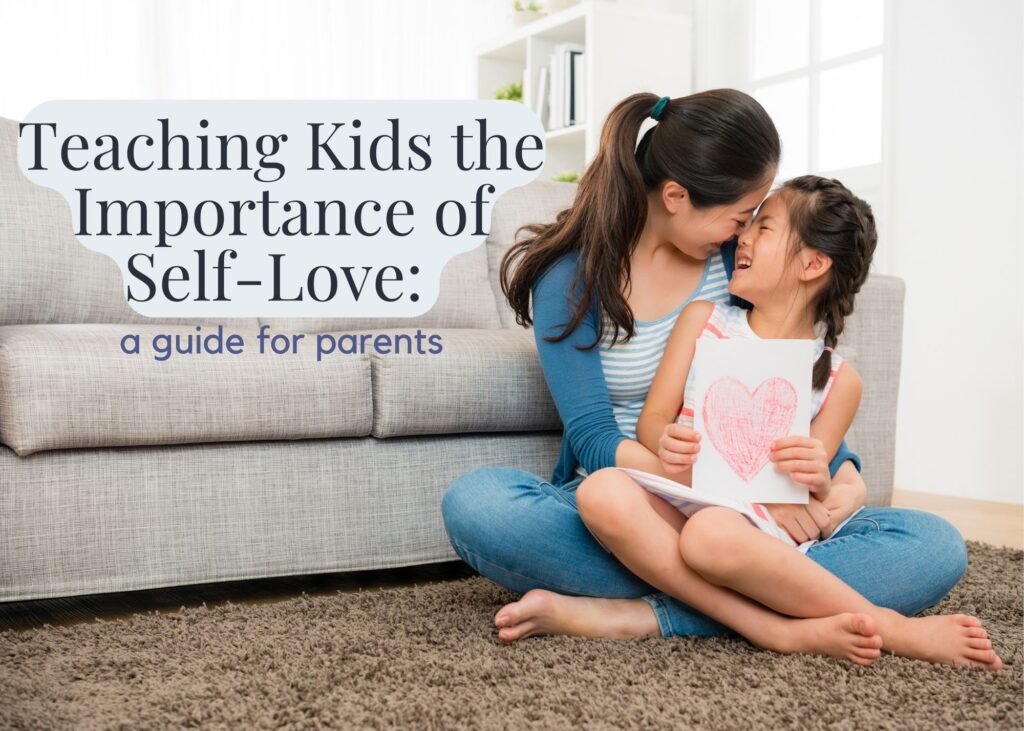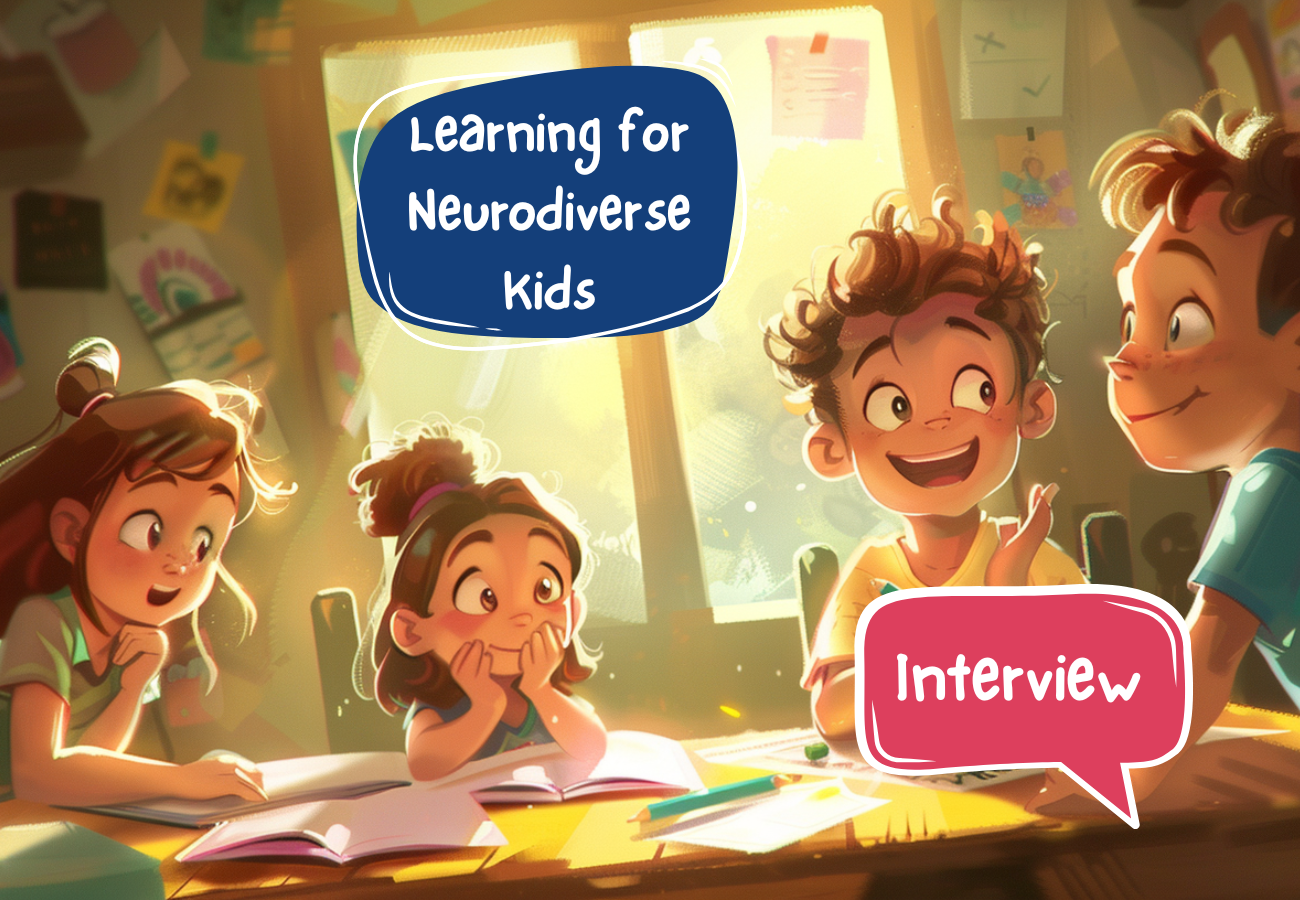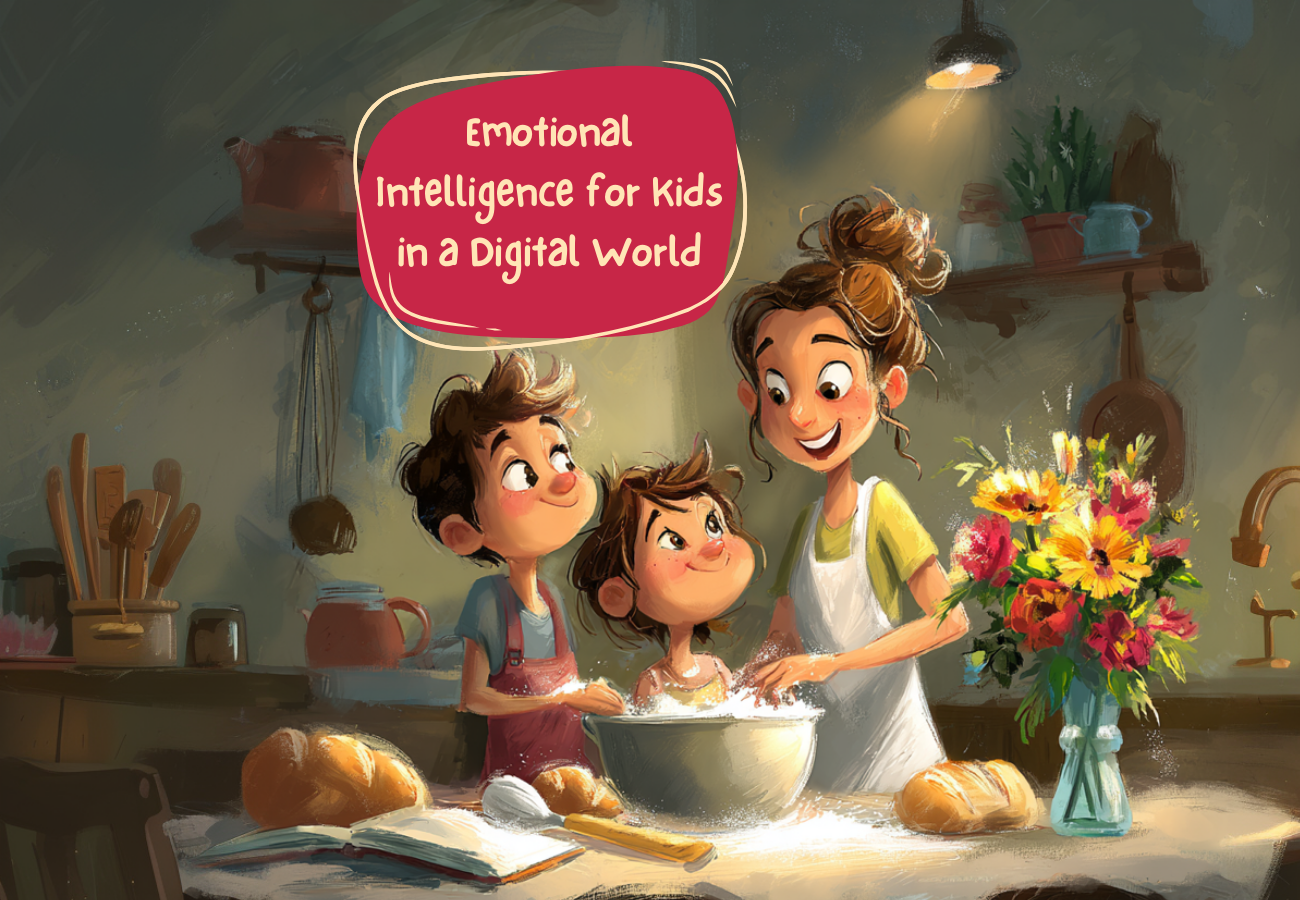How to Teach Kids the Importance of Self-Love

Love is such an important thing in our lives. One may say that the whole essence of our existence is love. A kid may first experience love for their moms and dads. Kids may love other people, things, or animals. Love is our superpower. But self-love is no less important. It’s an essential part of mental well-being and a sense of self-confidence. Its lack may cause many problems in the future.
Here are some useful tips and strategies for teaching your kid the value of self-love.
What Is Self-love Explained to Kids?
Like every other virtue, self-love can and should be taught. And if you doubt whether it’s not the same as teaching kids to be selfish, you are mistaken. It’s not a matter of a day, though.
To explain self-love to kids, you should touch upon many important topics. It’s possible to explain to them the concept of self-love and how it works. Here are some useful ideas.
Lead by Example
The most effective way to teach kids self-love is with your example. But make sure you provide a positive one. Self-love isn’t about meeting one’s own needs or neglecting the interests of close ones. It’s more about the ability to listen to oneself, consider the most vital desires, and take the necessary actions.
Show your little one what are the 5 Steps to self-love.
- Proper physical health care. Parents who sacrifice their health to work or, worse, bad habits are providing a negative example. They disrespect their health whenever they postpone morning exercises or miss breakfast.
- Mental health care. No less important is mental well-being. If parents are experiencing some problems (be it phobias or common life difficulties) and don`t consult a specialist, they also act disrespectfully in terms of themselves.
- Hobbies. People tend to get busy most of the time with things they don’t like. The majority of working issues are resolved with personal time. But our hobbies make us happy. And the whole life is about enjoying it. For example, most Americans prefer cooking and reading as their options for free time. It sounds like trifles, but it means a lot. A person who knows that self-love never gets rid of pleasure for the sake of work is trying to find a balance between them.
- You are cutting down on expenditures. It’s rational to buy only those things you need. But if you overdo it, staring at a piece of cloth you like every time you pass by the showcase and can buy it, you make no wise decision. Teach yourself and your kid to lavish gifts from time to time.
- Belief in low self-efficacy. If negative self-talk is your everyday habit, your kids will also be affected by it. You should always give yourself a chance and believe in your strength.
Encourage Positive Self-Talk
Regarding the previous topic, let’s talk about positive self-talk. This is the very habit that is mostly responsible for
- self-esteem;
- body image;
- resilience;
- mindfulness.
By encouraging kids to focus on their advantages, you show them how to teach self-love to themselves. Also, they learn to value the achievements or skills they have.
Foster a Growth Mindset
Self-love of a child begins with his first success. And parents should create conditions in which their little one will be able to unleash his natural talents. If you give them opportunities, a kid will take advantage of them. Step by step, children learn about personal capacities and come up with their first evaluations of their worthiness.
Still, along with success, you should make them ready for failure. That’s what mindfulness is about. Explain to kids that every success is long and hard work. Sometimes, they cope with problems easily, and sometimes, they fail. Still, only perseverance and patience can make the result possible. And no less important is analyzing mistakes and learning from them.
Also, encourage kids to take risks and not be afraid of losing something. They should have courage inside to develop self-love.

Help Children Identify Their Strengths
Each person has something they are most proud of. And the more we are proud of ourselves, the easier it is to start loving ourselves. Still, the reason for pride should be real and not inspired by parents.
Try to be objective and consider what your little one is good at. It can be everything beginning with his character traits and ending with skills and talents. Try to involve him in activities where he can believe in his strengths and boost his self-esteem. That can bring him a lot of positive emotions.
Also, doing good to the others can inspire you to be good to yourself. So, there is a great kindness adventure calendar you could introduce your kids to to promote kindness. https://aliciaortego.com/kindness-calendar-adventure-for-kids/
Remind him about his triumphs every time he rejects his self-worthiness. Tell him to develop his talents and cherish them to achieve much better results.
Promote Healthy Habits
This point is very important. Teach your little one that he’s responsible for his health. And no other affair can be worth more than it. But you should provide examples. Otherwise, your advice is empty. Begin with the most common problems even a young kid may encounter such as:
- scoliosis;
- poor eyesight;
- caries;
- big weight;
- arrhythmia;
- phobias;
- low self-esteem;
- bad bite;
- colds, etc.
Focus on these most common problems and teach your little one how to prevent them. Take part in developing healthy habits and help your kid to stick to them.
Teach Resilience
Stubbornness, which is sometimes mistaken for resilience, is a very common kid trait. To be honest, parents should be extremely patient when teaching resilience to kids. Or, they even ought to learn it themselves first. Nevertheless, it’s one of the most needed skills of the 21st century.
Nowadays, when life is so restless and changeable, one has to be ready to adjust to its condition in order to survive. That concerns all spheres of life, whether getting along with different people or accepting great changes in one’s personal life. The main thesis you should convey is:
- There`s no constant in our life;
- You should enjoy what you have now;
- Planning is good, but not all plans would work;
- Never make anything the most important thing in your life, you should treat everything you like equally, etc.
Self-love of a child begins working when he can bounce back from life’s difficulties for the sake of his happiness.
Foster a Sense of Community
A happy, self-sufficient person should be integrated into society. Make sure your daughter or son:
- have close friends to spend time with;
- don’t struggle with social phobia;
- have an opportunity to interact with people of different interests, ages, sexes, occupations, etc.
- are not afraid to voice their opinion among strangers.
Pay due attention to this issue and try hard to create a supportive and positive social environment for your little one. Also, take care of the relationship inside your family. Good families often support their members and like spending time together.
Conclusion
Love matters a lot, be it affection for other people or self-love. Now that you know how to teach self-love, start with these tips to make your kid a happier and mentally healthy person. The sense of self-worth will always be the stronghold for building future life for both kids and adults. Don’t be ashamed to love yourself; be ashamed not to take care of your greatest gift: life!
More articles

Creating Joyful Learning for Neurodiverse Kids: A Homeschooling Mom’s Journey with Alicia Ortego Books
A New Path in Education We always love hearing how our books support children and parents around the world. Recently, we spoke with a mom of three neurodivergent boys and the founder of Backyard Academy. Every day, she looks for creative ways to approach learning and parenting, and she shared with us how Alicia Ortego’s […]

Individual vs. Team Sport Activities for Your Kids: Pros and Cons
Helping children stay active and healthy often starts with sports. But deciding between individual or team sports can be tricky. Each type offers unique experiences and developmental benefits, but also has potential drawbacks. Understanding the differences can help you make informed choices based on your child’s personality, interests, and abilities. What Are Individual Sports? Individual […]

How to Nurture Your Child’s Emotional Intelligence in the Digital Age
Raising children today is nothing like it was in the 90s. Children in the 90s spent the majority of their time playing outdoors with neighbors or going to the local library or the beach. In that era, screen time mostly centered around TV, cable, or video games. But things are quite different in 2025. Kids […]



